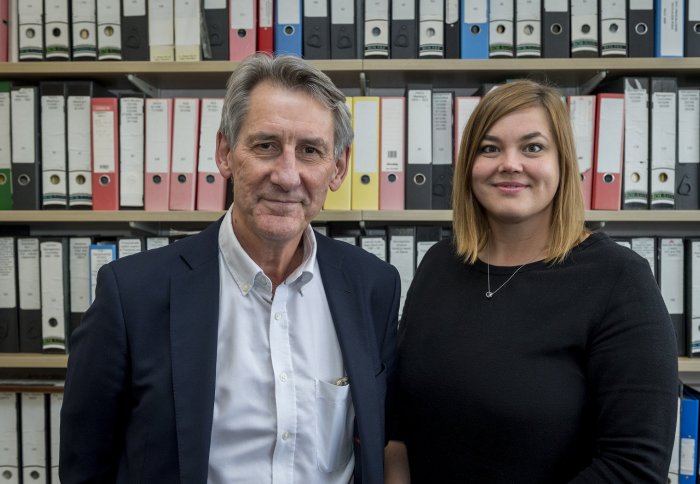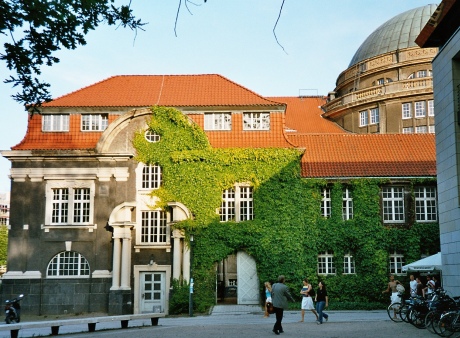German science leader visits Imperial
by Tom Rutland

Professor Neil Alford with Minister Katharina Fegebank
Hamburg's Minister for Science, Research and Equalities Katharina Fegebank led a delegation to the College on Thursday.
In science there are no borders
– Katharina Fegebank
The visit was hosted by Professor Neil Alford, Associate Provost (Academic Planning), who welcomed the group to the College and opened the morning’s programme with a presentation on the Imperial Innovation Ecosystem and the College’s White City Campus.
Germany is Imperial’s second greatest source of research collaboration – behind only the United States. Imperial researchers have collaborated on more than 5,000 publications with their peers in Germany within the last five years. Top German partner institutions include Heidelberg University, the Max Planck institutes, the Technical University of Munich, Humboldt University Berlin, RWTH Aachen University, University of Hamburg, and Karlsruhe Institute of Technology.
The College also has 430 students and 200 staff from Germany, while 3,300 Imperial alumni live in Germany.
During the session, participants discussed collaborations between Imperial and Hamburg. Professor Bernadette Byrne presented her collaboration with Hamburg University in an Innovative Training Network (ITN): a structured training programme organised by academia and industry which aims to equip early stage researchers with the skills needed for a successful research career in the field of structural biology.
During a discussion on Brexit, Professor Alford highlighted the importance of continued European collaboration post-Brexit: “For the UK science and engineering base, not to have access to or be able to collaborate with our European partners would be very bad news.”

Hamburg University
Strengthening cooperation
Hamburg’s Minister for Science, Research and Equalities, Katharina Fegebank, said “I am delighted to lead a delegation of our university leaders to explore mechanisms for future collaboration…we are here to send a strong signal about Brexit... in science there are no borders.”
The group later enjoyed a tour of the Department of Physics’ Blackett Laboratory, observing demonstrations by Professor Stefan Maier (Lee-Lucas Chair in Experimental Physics) and Professor Leszek Frasinski (Chair in Atomic and Molecular Physics).
Imperial academics also highlighted their engagements with the European XFEL, a research-facility with a base in Hamburg which hosts the world’s largest X-ray laser. The 3.4 kilometre-long facility, mainly located in underground tunnels, runs from the The Deutsches Elektronen-Synchrotron campus in Hamburg to the town of Schenefeld in Schleswig-Holstein.
Last month the College welcomed Bernd Sibler, the State Secretary in the Bavarian Ministry of Education and Culture, Science and Art, who led a delegation of higher education leaders and officials from Bavaria. Hosted by Professor Nick Jennings, Vice-Provost (Research and Enterprise), the delegation discussed UK-German research collaborations in the fields of bioengineering, computer science and electrical and electronic engineering, as well as touring the Data Science Institute.
Mr Sibler underlined that ‘International networking is a key objective of Bavarian universities…. Against the backdrop of Brexit, our visit is an early signal that we recognise the value of our partnerships with UK universities and want to strengthen our co-operation.’
Find out more about the College’s links to Europe.
Main image credit: Fergus Burnett
Article text (excluding photos or graphics) © Imperial College London.
Photos and graphics subject to third party copyright used with permission or © Imperial College London.
Reporter
Tom Rutland
Communications and Public Affairs